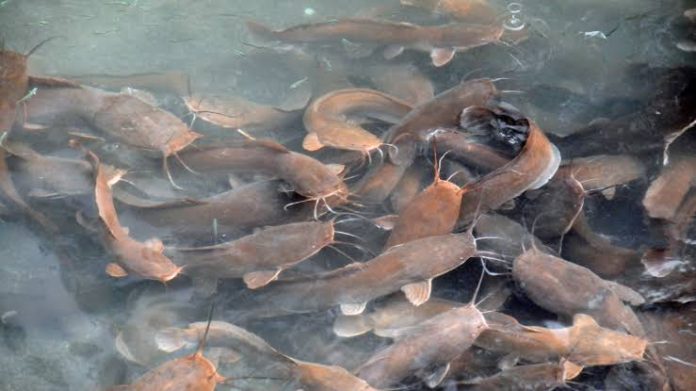7 Ways Catfish Buyers Can Defraud Farmers
Sales of catfish is one of the most difficult aspects that farmers must take cognizance of. This is due to the fact that the final success of a farming season depends solely on what happens during the process of selling. Many farmers have been defrauded via this process; as a matter of fact, there are several ways catfish buyers can defraud farmers. At least 7 of these ways will be discussed:
 Learn More
Learn More1. Scale manipulation: Many dubious buyers have devised the means of re-adjusting scales in such a way that it will favor them. One of the ways they do this is by tampering the spring of a scale with a flat object (such as metal, wood, etc.); by so doing, the scale will not exceed a particular reading. For example, they can fix the scale not to exceed 30kg.
To prevent this manipulation, a farmer should prepare a standard of measurement e.g. to expose all forms of manipulation, a feed that weigh 25kg can be placed on the scale of the buyers before sales begins.
2. Wrong selection of sizes: In catfish markets, catfishes are sold in sizes. For instance, for buyers that measure using 25kg bowls, big size fish is expected to be between 10 and 12 pieces, while small size fishes could range between 23 and 26 fishes. Some buyers will take 18 pieces and call it 26 pieces, in order to pay less (buyers pay more for bigger size fishes). The solution to this is to count along with the buyers as they are counting inside their containers.
READ ALSO: Incorrect Use of Floating Feed that Can Cost You a Fortune
3. Merging of already scaled fish: In most parts of West Africa, catfishes are measured inside containers that can contain between 25 and 40kg of fish. After each container is measured and set aside, some dubious buyers have a way of merging 4 containers to make it 3. It will only take a discerning farmer to discover what has gone wrong. The solution to this manipulation is to properly arrange already measured fishes in an open space where you can see them, and also don’t take anything for granted – you can keep records in black and white as the fishes are being measured. If you are not sure of the activities of buyers, select containers at random and re-measure after you must have concluded your sales.
4. Theft of Already Measured Containers: Any time you want to sell your fishes, always be conscious of the number of people that come along with the buyers. If these people are more than necessary, they might be around to perpetrate a form of theft. They know how to do this by networking between themselves. Some containers can be hidden in their empty vehicles, covered with some sacks. Or better still, some of them go to the extent of hiding fish containers in nearby bushes. It will not be too much for a farmer to employ one or two people for the work of security and monitoring on the day of sales.
5. Careless handling of already measured fishes: This carelessness can manifest in two ways: 1) some buyers will deliberately or indeliberately forget to put water on the fishes inside the container. This will result in death of these fishes thereby devaluing them right from the farm. 2) Some inexperienced buyers will arrange already measured containers inside harsh weather of intense heat, causing the water to heat up and kill the fishes.
READ ALSO: 6 Essential Rules for Success in Catfish Farming Business
6. Not honoring previous agreement: Some buyers have constituted the habit of not honoring agreements as regards price. At mid-sales, when the pond is already drained, this known dubious buyers may decide to tell the farmer that they cannot buy at the same price previously agreed due to one reason or the other e.g. “somebody has just called from the market that the price has dropped,” or “that kind of fish cannot enter the market we are taking it to.” This often makes the farmer to be at their mercy and sometimes compromise on the price in order to avoid aftermath.
7. Taking advantage of farmers who sell on credit: I would suggest that catfish farmers should not sell on credit, especially to an unknown buyer. My suggestion is based on the fact that most buyers have devised a means of defrauding farmers who sell on credit by sending farmers pictures of dead fishes after the fishes must have reached the point of sales (markets). They have in their archives photographs of dead fishes that they use to dupe farmers. This they do in order to reduce the amount they will pay the farmer at the end of the day. Some of them will not even pay at all.















